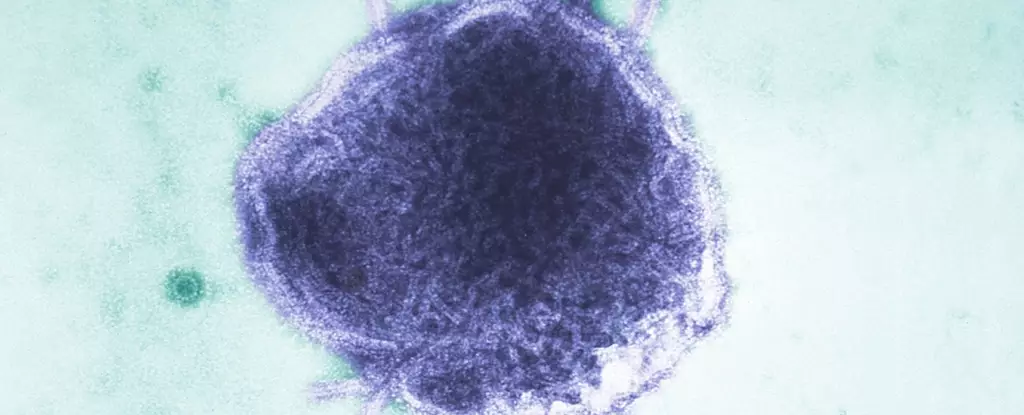In an unsettling turn of events, measles—a disease that was officially declared eliminated in the United States in 2000—is witnessing a significant resurgence. Recent data paints a troubling picture, showing skyrocketing measles cases in various regions, including North and South America as well as parts of Europe. In 2025, the Americas reported eleven-fold increases in measles cases compared to the previous year, while Europe is grappling with the highest rates seen in 25 years. This epidemic isn’t just an isolated issue; it represents underlying problems in public health policy, vaccine accessibility, and societal attitudes towards vaccinations.
As of May 2025, the U.S. has confirmed 935 measles cases across 30 states, a stark contrast to 285 cases reported in the year prior. Meanwhile, Canada is also facing a measles outbreak, with over 1,000 reported cases linked to a New Brunswick outbreak that began in 2024. The situation in Mexico further complicates matters, with 421 confirmed cases and many more under investigation. These numbers are not just statistics; they represent real lives affected, especially among children who are disproportionately impacted by this highly contagious virus.
The Measles-Free Era and Its Fragility
Measles once ravaged populations, causing millions of cases and thousands of deaths annually. It wasn’t until the advent of the measles vaccine in 1963, followed by the MMR vaccine in 1971, that the tide began to turn. The vaccination initiatives such as the National Childhood Immunization Initiative significantly raised vaccination coverage, reaching a remarkable 96% by 1981. This triumph allowed the U.S. Centers for Disease Control and Prevention (CDC) to declare measles eliminated in 2000. This dramatic victory, however, is proving to be more fragile than anticipated.
The current upsurge in cases prompts critical questions regarding the sustainability of vaccine-driven health victories. Historical data shows that from 2000 to 2010, the U.S. recorded fewer than 100 cases per year. Yet, since 2010, sporadic outbreaks have been linked to declining vaccination rates in various communities, particularly among those who are unvaccinated. One alarming realization is that the lower the vaccination rates dip, the more susceptible this population becomes to resurgence and endemicity.
Understanding the Contagion: Measles and Community Health
Measles is alarmingly contagious, with an R0 value (basic reproduction number) ranging from 12 to 18, meaning that each infected person can potentially infect up to 18 others. This statistic starkly contrasts with other diseases like flu and COVID-19, emphasizing the urgent need for herd immunity to mitigate further outbreaks. Currently, public health officials assert that approximately 95% of a population must be vaccinated to effectively safeguard against widespread measles infection.
Despite the known parameters of vaccination success, rates are declining, particularly in the unfortunate aftermath of the COVID-19 pandemic. Disruptions in healthcare accessibility are one significant factor contributing to this decline, resulting in a sizable population of children at risk of measles infection. Experts predict that without urgent measures, measles could become endemic in the U.S. once more, with extrapolations suggesting as many as 850,000 cases within the next 25 years if current vaccination rates persist.
The Evolving Dynamics of Public Trust and Policy
It is clear that revitalizing public trust in vaccinations is essential for reversing the current alarming trend. Vaccine hesitancy, fueled by misinformation and a lack of understanding, is a formidable opponent when attempting to restore high vaccination rates. Building and sustaining this trust will require comprehensive outreach and education initiatives to communicate not just the safety and efficacy of vaccines but the collective responsibility we hold as a society to protect our most vulnerable members.
Moreover, enhancing accessibility to vaccines remains critical. Programs like Vaccines for Children have historically made a significant impact, ensuring that children from varying socioeconomic backgrounds receive the necessary immunizations. However, ongoing and adaptive strategies will be vital to ensure that vaccination sites remain accessible, especially as the window for catching up on missed vaccines continues to shrink.
A Call to Action in Global Health
The resurgence of measles serves as a clarion call for both local communities and global health authorities. It’s a reminder that past victories in public health are not permanent achievements; they require ongoing vigilance and action. The interconnected nature of today’s society dictates that health policies must accommodate not only the immediate needs of vaccination but also the long-term implications of a well-informed public. Should we fail to act decisively now, we risk undoing decades of progress made in the fight against vaccine-preventable diseases. With every unvaccinated child, the specter of once-eliminated diseases looms larger, emphasizing that the battle against measles—a preventable yet perilously contagious disease—must persist.

